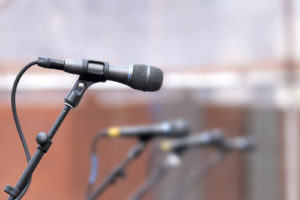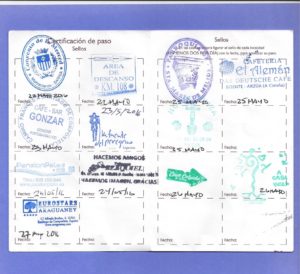THE MOST IMPORTANT ELECTION OF OUR LIFETIME … is over.
Unfortunately, nothing has been settled. Oh, we have elected a president, but it feels more like the campaign has just gone to extra innings. People’s antipathies towards the candidates or their supporters didn’t change just because one of them got more than 270 electoral votes. In fact, they have hardened into brickbats that we’re just itching to hurl at each other.
To hear the fake news sites tell it, we have only two narratives to choose from:
- The benighted, racist, uneducated people in those flyover states have led us down the road to perdition.
- The arrogant, out-of-touch liberal snowflakes can’t seem to grasp that they’ve gotten their comeuppance and should suck it up and move on.
In the real world — the world where people have to look each other in the eye as opposed to the faceless ether that is social media — things are messier. I have a friend — a dyed-in-the-wool liberal Democrat — who had as much distaste for Hillary as any Trumpster. I know people who voted for Trump, believing as much as any blue-stater that he is at best a vulgarian and at worst a sexual predator. True believers aside, I think many people made a decision that required them to make peace with things they found objectionable, even abhorrent. And many, like me, are angry and resentful about being forced to make such a choice.
Now that the election gravy train has left the station, the media are only too happy to continue the narrative that we are hopelessly polarized. Reactions to the election have dominated the news, from violent anti-Trump protests to reports of attacks (verbal and physical) on minorities. Once more, we are being asked to wade through the muck and discern what is true (some reports have been proven false), and figure out what we will do about it.
“How could this be?” a friend lamented. “Has this river of hate been here all the time? I thought we had made such progress since the days of segregation. Now I think it never really went away.”
If we are surprised by the vitriol we are hearing it is because we have bought into the idea that if we legislate goodness, people will be good. We think that if we make it socially unacceptable to express the ugliness in our hearts, the ugliness will disappear.
“If only it were all so simple! If only there were evil people somewhere insidiously committing evil deeds, and it were necessary only to separate them from the rest of us and destroy them. But the line dividing good and evil cuts through the heart of every human being. And who is willing to destroy a piece of his own heart?”
Aleksandr Solzhenitsyn, The Gulag Archipelago
We can be frightened, we can be disappointed, we can be angry about the ugliness being manifest in our country. But we should not be surprised. There is a dividing line between good and evil, all right. But it isn’t only between Us and Them. It is also within us — each of us, all of us, no exceptions. This is not something that can be legislated, regulated or reasoned away.
It is not a political problem, it is a spiritual one.
I’m not suggesting that some people are irredeemably evil (as one candidate did) and we should sit idly as we descend into mayhem. Laws can and should regulate behavior by imposing penalties for actions society deems undesirable. They are necessary, both as a deterrent and as an enforcement of the common will. This is one of the primary functions of government.
But laws cannot change the human heart.
While they can constrain our behavior, no government and no law has ever succeeded in making people good.
With the humility of people who know that the dividing line between good and evil runs through our hearts as well as those we vilify, there are things we can and should do in this most unsettling season:
We can and should look at why, at this moment in our history, the angry beast within us has been awakened, and with such fervor.
We need to ask why we won’t tolerate any views other than our own. Technology has allowed us to construct intellectual bunkers, and in this respect, it has not served us well. Armed with a TV remote and the “hide” button on Facebook, we can filter out what we’d rather not hear.
Let’s be brave and actually listen to “one of them”. Not agree, not affirm, not encourage. Not try to convince or out-argue (does that ever work?) Just listen, and if asked, state our position with as much grace and love as we can muster.
We need to use every means given to us by our democracy to uphold our ideals of justice, equality, opportunity and freedom:
Vote. Pray. Write letters. Run for office. Teach. Be an example of the good you want to see. Pray some more.
We need to do one more thing. We need to seek God, who alone can change our hearts and the hearts of those who sow dissent and rancor. I think of John Newton, the slave trader whose heart was transformed by the knowledge and love of God. He renounced his wicked profession, went into ministry, and became a mentor to William Wilberforce, who was instrumental in ending the slave trade in England. He also wrote these words:
Amazing grace! How sweet the sound
That saved a wretch like me!
I once was lost, but now am found;
Was blind, but now I see.
This is what God can do that Congress can’t: make the blind see.
This is what no president or senator or court can do: redeem an “irredeemable” and declare victory over a divided heart.










